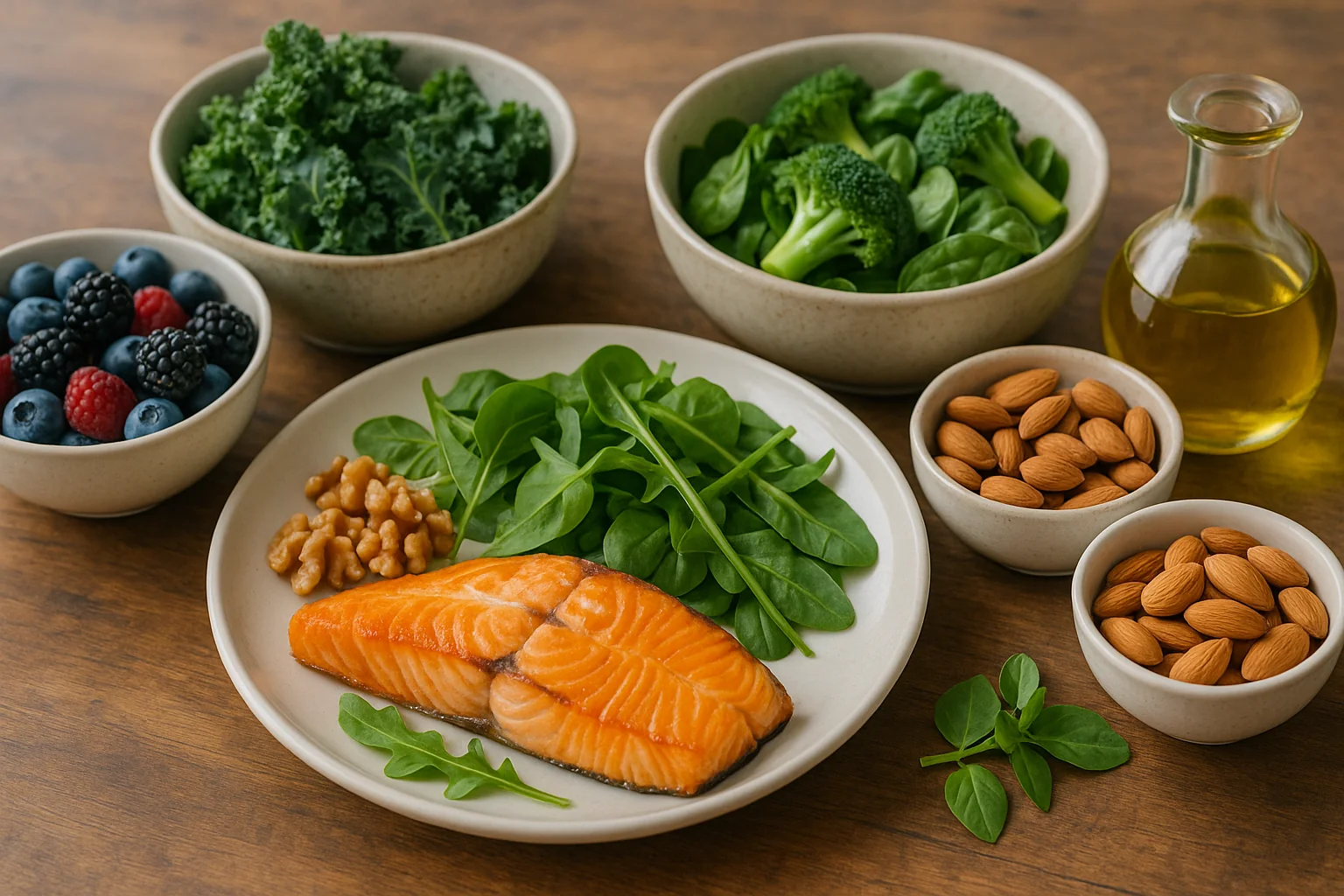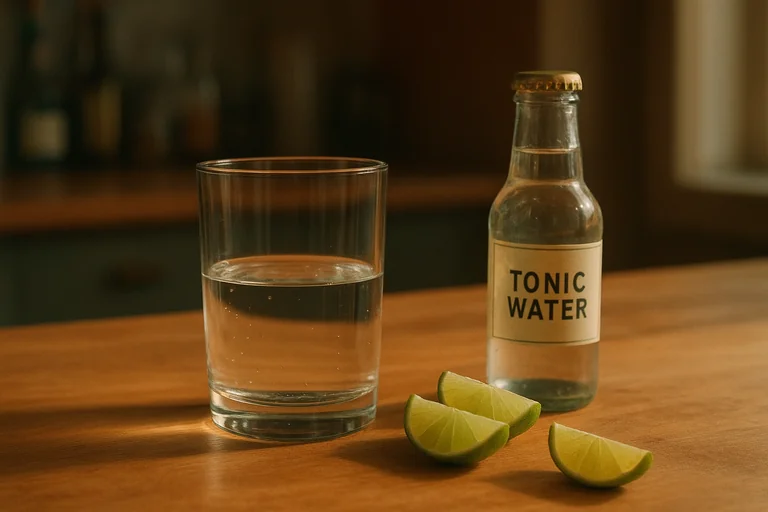A 2 minute assessment to get a personalized mental health or alcohol recovery plan.
Think Mediterranean-ish: plants, fiber, fish, nuts, olive oil, and coffee. These foods don't "detox" you in a weekend - they steadily improve liver fat, inflammation, and metabolic health over weeks to months.
What You'll Discover:
- The most evidence-backed foods for liver health and exactly how much to eat.
- Why coffee (yes, really) protects your liver and how much you need.
- The truth about liver "cleanses" and supplements that can actually harm you.
- What to limit if you want to protect your liver long-term.
- A simple 7-day meal plan you can mix and match.
- How to build liver-friendly plates using easy, repeatable rules.
- When to seek urgent medical care for liver problems.
You've heard the promises: juice cleanses that "flush toxins," supplements that "regenerate liver cells," special teas that "detoxify your body in 48 hours." They're appealing because they sound simple and fast.
Here's the truth: your liver doesn't need a dramatic intervention. It needs consistent, evidence-based nutrition over time. The strongest signal from medical research is clear: whole dietary patterns first - specifically Mediterranean-style eating - combined with modest weight loss if needed.
This guide cuts through the noise and gives you exactly what works, backed by research from major liver disease guidelines.
Why Food Matters for Liver Health
Most everyday liver problems now fall under MASLD (metabolic dysfunction-associated steatotic liver disease, previously called "NAFLD" or "fatty liver disease"). This condition is driven primarily by metabolic factors - insulin resistance, excess weight, inflammation.
The good news? Nutrition is one of the most powerful levers you have. Studies consistently show that Mediterranean-style dietary patterns, combined with weight loss targets of about 5-10% of body weight, produce measurable improvements in liver fat, inflammation, and even fibrosis.
No magic supplements required. Just real food, eaten consistently, in a pattern that supports metabolic health.
The Best Foods for Your Liver (And How Much to Eat)
Coffee: The Surprising Liver Protector
Yes, really. Regular coffee - whether caffeinated or decaf - has been linked to lower risks of liver fibrosis, cirrhosis, and chronic liver disease. Multiple meta-analyses show that coffee drinkers have lower odds of significant liver fibrosis in MASLD compared to non-drinkers.
How much: Aim for 2-3 cups per day if you tolerate it well. Watch for anxiety or reflux. Skip the sugar-heavy syrups and flavored creamers - those undermine the benefit.
The protective effect appears with decaf too, so if caffeine bothers you, decaf still works.
Extra-Virgin Olive Oil: Your Default Cooking Fat
In people with MASLD, randomized controlled trials suggest that olive oil can reduce disease severity and improve metabolic markers. The broader Mediterranean diet research consistently favors extra-virgin olive oil (EVOO) as a cornerstone fat.
How much: Use 1-2 tablespoons daily as your primary cooking fat and salad dressing base. Keep a bottle on your counter - if it's visible and accessible, you'll actually use it.
Fatty Fish and Omega-3 Sources
Multiple systematic reviews and meta-analyses show that omega-3 fatty acids can improve liver fat and triglycerides in people with MASLD. The evidence is supportive, though results vary across trials - omega-3s help, but they're not a cure-all.
How much: Aim for 2-3 servings per week of salmon, sardines, trout, or mackerel. Plant sources like walnuts, flax, and chia seeds add support but don't fully substitute for the EPA and DHA found in fish.
Nuts and Seeds
Observational research links regular nut and seed intake with lower MASLD prevalence and less advanced fibrosis. Interventional data are still emerging, but the direction is positive.
How much: Eat a small handful (about 28 grams) most days. Choose unsalted, minimally processed varieties. Keep them visible - in a bowl on the counter or in your desk drawer.
Whole Grains
Randomized trials show that whole-grain wheat can reduce liver fat and improve liver enzymes compared to refined grains. The mechanisms likely involve fiber and improved insulin sensitivity.
How much: Make at least half your grains whole. Think oats, brown rice, quinoa, farro, whole-wheat bread, and whole-grain pasta.
Beans and Lentils (Legumes)
Higher legume intake is associated with lower risk of MASLD. Swapping legumes for refined carbs, red meat, or processed meat helps with weight, insulin resistance, and lipids - all key factors for liver health.
How much: Aim for 1 cup cooked most days. Add them to soups, stews, grain bowls, or use lentil pasta as a swap.
Colorful Produce (Especially Crucifers)
Diverse fruits and vegetables deliver fiber and polyphenols that support insulin sensitivity and gut-liver health. Cruciferous vegetables - broccoli, Brussels sprouts, cauliflower - appear frequently in MASLD-friendly eating patterns.
How much: Eat at least 5 servings daily across different colors and types. Variety matters more than any single "superfood."
The Pattern Principle: Build plates that combine these foods. For example: grilled salmon over lentil salad with an EVOO vinaigrette, roasted broccoli on the side, berries for dessert, and coffee earlier in the day. Pattern beats any single ingredient.
What to Limit: The Unglamorous But Powerful Part
Sugary Drinks and Ultra-Processed Sweets
These drive liver fat accumulation through excess fructose and calories. Swap for water, unsweetened tea, or black coffee.
Refined Grains and White Flour
Replace white bread, white rice, and regular pasta with whole-grain versions. This simple swap improves glycemic control and reduces liver fat.
Heavy Alcohol
Even if your primary liver issue is metabolic (not alcohol-related), alcohol adds strain. If cutting back feels difficult, talk with your clinician about naltrexone to reduce heavy-drinking episodes while you work on your nutrition plan. For more information on supporting your liver during alcohol reduction, read our guide on how to detox your liver from alcohol safely.
A 7-Day Liver-Friendly Meal Sketch
Mix and match these ideas to fit your preferences:
Breakfasts:
- Oatmeal with walnuts, chia seeds, and berries (drizzle of EVOO optional)
- Whole-grain toast with avocado and a poached egg; coffee or decaf on the side
Lunches:
- Lentil-and-vegetable soup with a side salad dressed in EVOO
- Quinoa bowl with chickpeas, roasted broccoli, and tahini-lemon dressing
Dinners:
- Grilled salmon, farro, and garlicky greens sautéed in olive oil
- Sardine-tomato whole-wheat pasta with an arugula salad, olives, and EVOO
Snacks:
- Small handful of nuts
- Carrot sticks with hummus
- Fresh fruit
Keep portions comfortable. The goal is consistency, not perfection. You're building sustainable habits, not white-knuckling through a restrictive diet.
If You Already Have MASLD or "Fatty Liver"
Targets That Move the Needle
Weight change: If you're carrying excess weight, aim for 5-10% loss over several months. Trackable improvements in liver fat, inflammation, and fibrosis start at this level. Go slower if needed - sustainable change matters more than speed.
Eating pattern: Favor Mediterranean-style eating built around the foods above. This pattern has the strongest evidence base for MASLD.
Add coffee if you tolerate it; limit or eliminate alcohol.
What NOT to Do
Don't rely on "detox" teas, powders, or juice cleanses. They don't work, and some can be harmful.
A few supplements - including green tea extract and kava - have been linked to liver injury. Avoid concentrated supplements unless your clinician specifically recommends them. Food-form green tea is fine; be wary of high-dose extracts.
When to Get Help Fast
Yellow eyes or skin, severe abdominal swelling, confusion, or vomiting blood are medical emergencies. Seek urgent care immediately.
Build-Your-Plate Rules (Easy and Repeatable)
- Half produce, quarter protein, quarter whole grains - and EVOO somewhere on the plate
- Fish twice weekly; legumes on most other days
- Nuts daily; add coffee (black or lightly sweetened) if you enjoy it
- Water first; save sugary drinks for rare occasions
- Plan your environment: Stock cans of beans and fish, frozen vegetables, whole grains you actually like, and keep EVOO on the counter where you'll see it
Understanding Fat Quality Over Quantity
You don't need to cut all fat. In fact, quality fats are consistently liver-friendly when they're part of a balanced pattern.
Extra-virgin olive oil, nuts, seeds, and fatty fish all support liver health. The problem isn't fat itself - it's the wrong types of fat (trans fats, excess saturated fat from processed foods) combined with excess sugar and refined carbs.
Focus on quality over quantity. Use olive oil freely as your main fat. Eat nuts and seeds daily. Include fatty fish regularly. These are evidence-backed choices.
Coffee Safety: What If You Have Reflux or Anxiety?
If coffee triggers reflux or worsens anxiety, you have options. Try decaf first - the liver-protective signal appears with decaf too. You can also experiment with smaller servings or earlier timing in the day.
If coffee still doesn't work for you, that's okay. Focus on the other evidence-backed foods and overall dietary pattern. Coffee is helpful, but it's not mandatory.
Can Omega-3 Supplements Replace Fish?
Omega-3 supplements can help improve some MASLD markers, but they're adjuncts, not replacements. Food-first plus an overall Mediterranean-style pattern still wins.
If you don't eat fish for dietary or preference reasons, high-dose EPA/DHA supplements (typically 2-4 grams daily of combined EPA+DHA) may help. But discuss dosing and quality with your clinician first - not all supplements are created equal.
The Truth About "Liver Cleanses"
Skip them. There's no credible evidence that juice fasts, detox teas, or supplement protocols provide lasting liver benefit. In some cases, they can cause harm.
Your liver doesn't need a dramatic reset. It needs sustainable pattern changes over weeks and months. If you have MASLD risk factors or abnormal liver labs, talk with your clinician about proper monitoring - lab work, imaging, or fibrosis scoring tools.
These evidence-based tools matter. Weekend cleanses don't.
Your Next Best Step
Ready to start supporting your liver with food that actually works? Here's what to do this week:
- Pick two upgrades you can repeat 5+ days per week. Examples: swap butter for EVOO, add a bean dish daily, eat fish twice this week.
- Add these three habits for the next month: fish twice weekly, a handful of nuts daily, and make half your grains whole.
- If alcohol keeps creeping into your routine and it's hard to cut back, ask your clinician about naltrexone to reduce heavy-drinking nights while you establish your food habits. For practical strategies on reducing alcohol intake, see our guide on how to use naltrexone to stop alcohol cravings.
Get a private liver health and alcohol risk assessment with clear next steps including self-guided nutrition strategies and clinician options.
Start here: Take the Assessment




